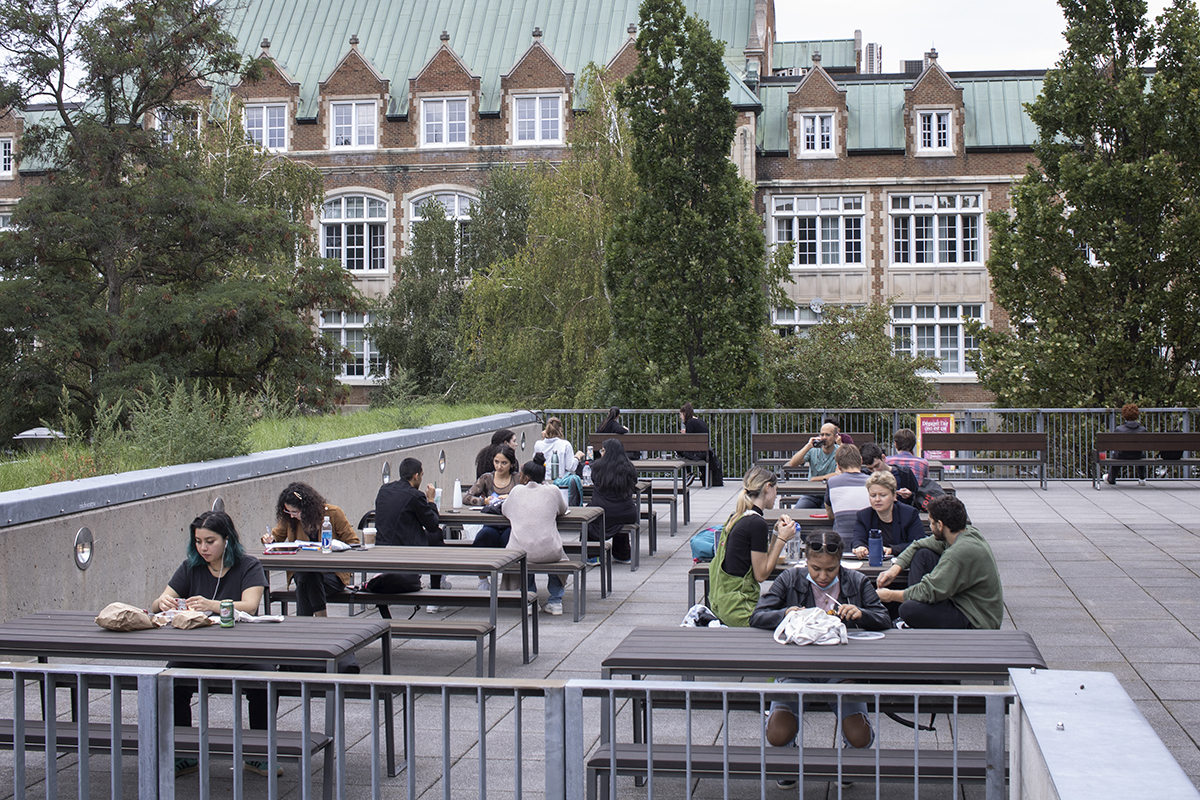Going back to normal isn’t going to go as we expected
Is it just me, or does being back on campus feel weird to anyone else? Eighteen months of online school came to an end in the span of a week with little more than a new access card to mark the occasion. I don’t know what I was expecting; certainly not a marching band to parade down Sherbrooke St. to raise the Concordia flag over the Loyola campus, but a bit more than my professors saying “wow, Zoom sucked… anyway here’s the syllabus.”
It was the perpetual promise of this “back to normal” that helped me through some of the toughest moments of the pandemic. Now that I am living the life that was interrupted, it feels like at any moment I could look down and find the pen that I lost on the last day of in-person classes before Montreal entered its first lockdown — slightly dusty but otherwise in the same place I left it.
The influenza pandemic of 1918 was dubbed the “forgotten plague” because of how quickly it disappeared from public discourse afterwards. Historians aren’t certain as to the reason why people stopped talking about it. Possibly, pandemics were more common back then or news coverage focused more on the war than the flu. Maybe after living through four years of chaos caused by a world at war, they too were desperate for a return to normalcy.
100 years later, as the COVID-19 outbreak surpasses the 1918 influenza epidemic as North America’s deadliest pandemic, I catch myself slipping into this new collective form of self-induced amnesia. On a video call with my family, my mother asked me how many Concordians died from COVID-19 and I had to say that I didn’t know if any Concordians died. I doubted that Concordia would have the authority to disclose that information, but I checked their website regardless and couldn’t find anything.
It’s only with those closest to me in our most private and intimate conversations that keeps the pandemic from fading into memory. While on a walk, a friend grieved for her “lost year” and the experiences she missed out on and could never get back. Another, who had lost multiple family members in the second wave, cried over feeling guilty that he wanted the lockdown to end. After returning to the last place I saw the girl I was dating before the lockdown, I realized how angry and jaded this pandemic had left me.
I have heard this pandemic be compared to war, natural disaster, even religious reckoning. In my opinion, the best comparison is to the fable of the frog and the pot of boiling water. The fable states that if you put a frog in a pot of boiling water it will immediately jump out; but if you put it in cool water and then bring the pot to a boil, the frog doesn’t feel the changing temperature and boils alive.
Inversely, this pandemic threw us into a pot of boiling water and made us wait until it cooled. A lot of people died very quickly, and then gradually slightly fewer people died as time went on. Life moved forward with online classes and remote summer jobs. The curfew got pushed back and was eventually lifted. Social bubbles got bigger without us noticing. And along the way we forgot what it was like not to be boiling alive.
Photograph by Christine Beaudoin




